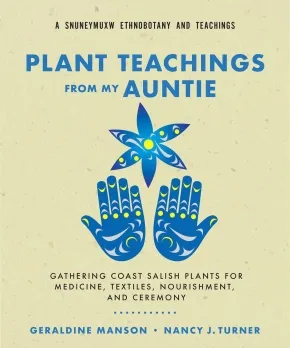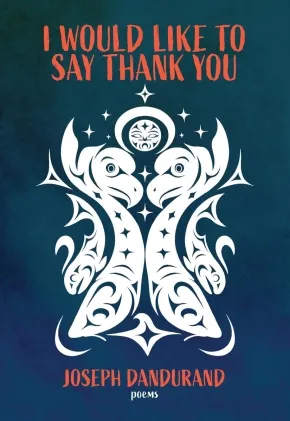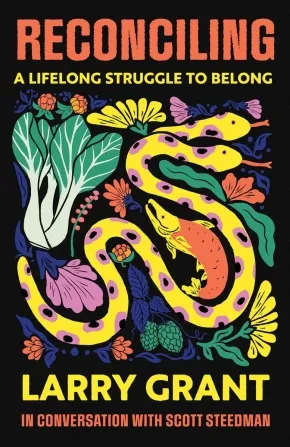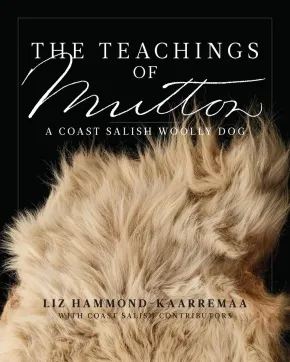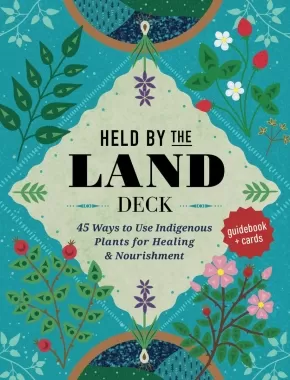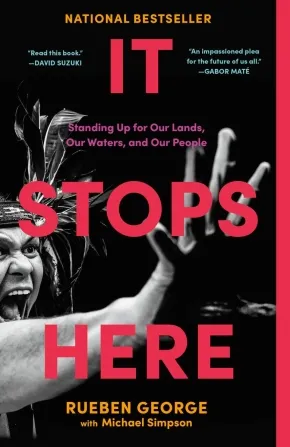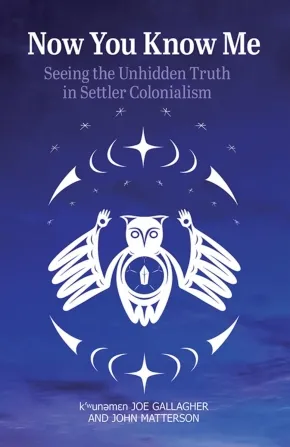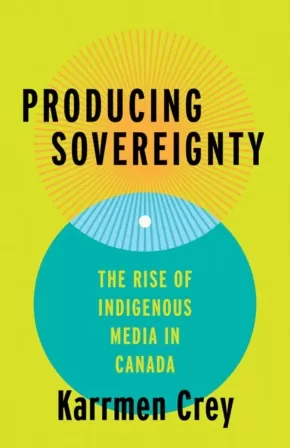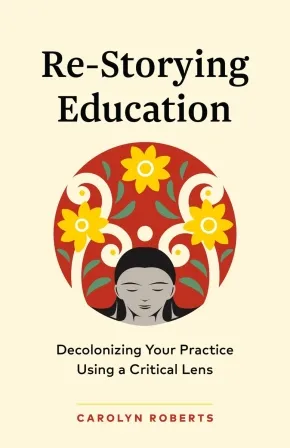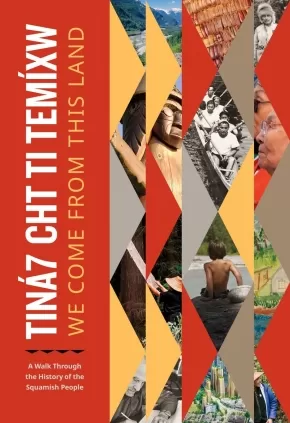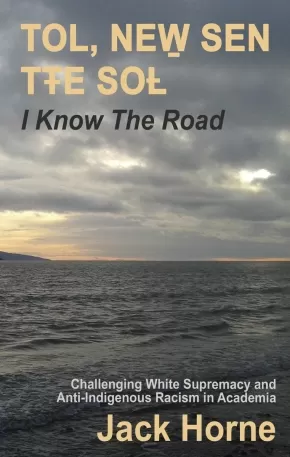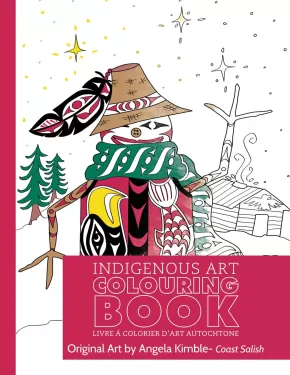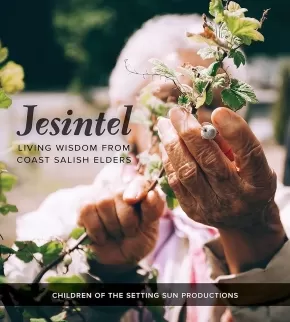
Coast Salish
1
-
15
of
49 Results;
Sort By
Go To
of 4
Plant Teachings from My Auntie: Gathering Coast Salish Plants for Medicine, Textiles, Nourishment, and Ceremony
$24.99
Format:
Paperback
Text Content Territories:
Indigenous Canadian; First Nations; Salish; Coast Salish; Snuneymuxw ;
Reading Level: N/A
ISBN / Barcode: 9781774060322
Synopsis:
Synopsis:
A Snuneymuxw ethnobotany guide grounded in Indigenous knowledge and deep ancestral connection to the land.
Plant Teachings from My Auntie: Gathering Coast Salish Plants for Medicine, Textiles, Nourishment, and Ceremony is a richly illustrated compendium of the many culturally significant wild foods and herbal remedies found in the traditional territory of the Snuneymuxw First Nation.
Each entry features plant descriptions complete with both their Hul'q'umi'num and botanical names, typical native habitat, and traditional uses. Particular attention is paid to the sacred Western Red Cedar or "tree of life." The book also offers a selection of healing recipes; tips for respectful, sustainable harvesting; ethical and responsible preparation techniques; and a guide to local gathering sites.
Snu'y'ulh refers to teachings handed down through generations. Snuneymuxw Elder and Knowledge Keeper Geraldine Manson, whose traditional name is C'tasi:a, draws on the sacred knowledge passed on to her by her "Auntie Ellen," Dr. Ellen White, also known as Kwulasulwut. Central to these learnings is the fundamental concept or protocol of honoring gifts from the land by gathering and preparing in ways that respect the history, culture, spirituality, and Indigenous knowledge associated with each species.
This powerful work is a rare treasure that will appeal to those seeking to foster greater cultural understanding and ecological responsibility while deepening their commitment to meaningful reconciliation.
Additional Information
96 pages | 9.00" x 7.50" | Paperback
I Would Like to Say Thank You
$19.95
Format:
Paperback
Text Content Territories:
Indigenous Canadian; First Nations; Salish; Coast Salish; Sto:lo; Kwantlen;
Reading Level: N/A
ISBN / Barcode: 9780889714908
Synopsis:
Synopsis:
New poems from award-winning storyteller and poet Joseph Dandurand.
Prolific Kwantlen writer Joseph Dandurand offers his latest poetry collection, following The Punishment and The East Side of It All, which was shortlisted for the 2021 Griffin Poetry Prize.
Building on his legacy as a skilled storyteller, Dandurand continues to write about trauma, love, grief and forgiveness. These poems are about the streets, the East Side, self-pity, spirits and Dandurand’s people, the Kwantlen. As the jury of the 2022 Latner Writers’ Trust Award wrote, “his quotidian reflections read like parables, with startling economy.” After putting this collection down, don’t be surprised to find yourself saying “thank you,” too.
Additional Information
102 pages | 5.50" x 8.00" | Paperback
Reconciling: A Lifelong Struggle to Belong
$26.95
Format:
Paperback
Text Content Territories:
Indigenous Canadian; First Nations; Salish; Coast Salish; Musqueam;
Reading Level: N/A
ISBN / Barcode: 9781770417984
Synopsis:
Synopsis:
A celebration and in-depth exploration of Canada’s West Coast through an Indigenous and immigrant lens, Reconciling weaves together personal tales and tough histories for guiding steps toward true understanding.
A personal and historical story of identity, place, and belonging from a Musqueam-Chinese Elder caught between cultures.
It’s taken most of Larry Grant’s long life for his extraordinary heritage to be appreciated. He was born in a hop field outside Vancouver in 1936, the son of a Musqueam cultural leader and an immigrant from a village in Guangdong, China. In 1940, when the Indian agent discovered that their mother had married a non-status man, Larry and his two siblings were stripped of their status, suddenly labeled “bastard children.” With one stroke of the pen, they were no longer recognized as Indigenous.
In Reconciling, Larry tells the story of his life, including his thoughts on reconciliation and the path forward for First Nations and Canada. His life echoes the barely known story of Vancouver — and most cities in the Americas, from Cusco to Mexico City, from New York to Toronto. It combines Indigenous traditions with key events of the last two centuries, including Chinese immigration and the Head Tax, the ravages of residential schools, and now Indigenous revival and the accompanying change in worldview. Each chapter takes the form of a series of conversations between Larry and writer Scott Steedman and is built around one pivotal geographical place and its themes, including the Musqueam reserve, Chinatown, the site of the Mission Residential School, the Vancouver docks, and the University of British Columbia.
When Larry talks about reconciliation, he uses the verb reconciling, an ongoing, unfinished process we’re all going through, Indigenous and settler, immigrant and Canadian-born. “I have been reconciling my whole life, with my inner self,” he explains. “To not belong was forced upon me by the colonial society that surrounded me. But reconciling with myself is part of all that.”
Reviews
“Musqueam Elder Larry Grant’s intimate eyewitness accounts of huge changes in the region’s landscape and its evolving relationship with his people are a must-read for people who want to join Canada’s journey towards reconciliation.” — Paul Yee, author of Saltwater City
“Conversing with the ideal listener, the inquisitive, sensitive journalist Scott Steedman, Larry Grant speaks unflinchingly of his dual heritages and how, for most of his life, he had to suppress one or another or both. Steedman presents Grant’s spoken prose with pristine clarity, and so governmental crimes and real-estate wrongs are laid bare, and unbearable is our outrage, but necessary is our courage to rectify and reconcile.” — George Elliott Clarke, author of Where Beauty Survived: An Africadian Memoir
“Larry Grant’s conversational memoir is a poignant and honest recollection of identity politics as well as a meditation on bearing witness and surviving ecological and cultural displacement. His wise words invite you to reflect on how all of us can better reconcile with the past, present, and future and how we can never escape the fact that everything in this world is connected.” — Donna Seto, author of Chinatown Vancouver: An Illustrated History
Additional Information
232 pages | 5.50" x 8.50" | 16 black and white halftones; bibliography; table of contents | Paperback
The Teachings of Mutton: A Coast Salish Woolly Dog
$36.95
Format:
Paperback
Text Content Territories:
Indigenous Canadian; First Nations; Salish; Coast Salish; Sto:lo; Katzie First Nation; Squamish; Snuneymuxw ; Musqueam; Indigenous American; Native American; Salish; Coast Salish; Suquamish ; Skokomish (Twana);
Reading Level: N/A
ISBN / Barcode: 9781998526024
Synopsis:
Synopsis:
The pelt of a dog named “Mutton” languished in a drawer at the Smithsonian for 150 years until it was discovered, almost accidentally, by an amateur archivist. This book tells Mutton's story and explores what it can teach us about Coast Salish Woolly Dogs and their cultural significance.
Until now, there has been very little written about the enigmatic Coast Salish Woolly Dog, or sqʷəmey̓ in the Hul'q'umi'num language. According to Indigenous Oral Histories of the Pacific Northwest, this small dog was bred for thousands of years for its woolly fibres, which were woven into traditional blankets, robes and regalia. Although the dogs were carefully protected by Coast Salish peoples, by the 1900s, the Woolly Dog had become so rare it is now considered extinct.
Co-authored with weavers, Knowledge Keepers, and Elders, The Teachings of Mutton interweaves perspectives from Musqueam, Squamish, Stó:lō, Suquamish, Cowichan, Katzie, Snuneymuxw, and Skokomish cultures with narratives of science, post-contact history, and the lasting and devastating impacts of colonization. Binding it all together is Mutton's story—a tale of research, reawakening, and resurgence.
Reviews
“What a compelling story, reflecting a way of life, practical knowledge, artistry and change in the Pacific Northwest! Mutton, the domesticated woolly dog, represents so much more than a museum collection or a source of weaving material. Generations of breeding, learning and sharing, caring and trading are mirrored in the discovery of his pelt in a drawer at the Smithsonian. Liz Hammond-Kaarremaa and her respected Salishan co-authors and Knowledge Keepers have brought Mutton into the present, and in doing so, have given us a new and unique perspective on the complex history of this region and on the meaning of Truth and Reconciliation. The book is clearly and thoughtfully written, and supplemented with excellent illustrations. It is a ‘must read’ for anyone wishing to know more about weaving arts, dog breeds, Indigenous cultures and/or history in northwestern North America.” — Nancy J. Turner, Distinguished Professor Emerita, University of Victoria
“Conscientious and accessible, The Teachings of Mutton weaves a charming and informative history, walking through the discovery of his pelt in a museum drawer to the modern science that reveals the shape of this dog’s life. Highlighting and correcting generations of non-Indigenous misinterpretation, the intertwined histories provided by Salish knowledge keepers reveal the nuanced Indigenous sciences of dog husbandry, spinning, weaving, and the cultural significance of Woolly Dogs while telling a lively story.” — Kathryn Bunn-Marcuse, PhD, curator of Northwest Native art and director of the Bill Holm Center for
Additional Information
264 pages | 8.00" x 10.00"
Curve!: Women Carvers on the Northwest Coast
$45.00
Artists:
Format:
Hardcover
Text Content Territories:
Indigenous Canadian; First Nations;
Reading Level: N/A
ISBN / Barcode: 9781773272542
Synopsis:
Synopsis:
An eighty-year overview of wood and argillite carving by Indigenous women artists on the Northwest Coast.
Though women of the Northwest Coast have long carved poles, canoes, panels, and masks, many of these artists have not become as well known outside their communities as their male counterparts. These artists are cherished within their communities for helping to keep traditional carving practices alive, and for maintaining the dances, songs, and ceremonies that are intertwined with visual art production. This book, and an associated exhibition at the Audain Art Museum, gathers a range of sculptural formats by Indigenous women in order to expand the discourse of carving in the region.
Both the exhibition and publication are co-curated by Dana Claxton, artist, filmmaker and head of the University of British Columbia's Department of Art History, Visual Art and Theory; and Dr. Curtis Collins, the AAM's Director & Chief Curator. Commentaries by Skeena Reece, Claxton, and Marika Swan, and interviews with artists Dale Campbell and Mary Anne Barkhouse are presented alongside more than one hundred artworks from public and private collections across North America, including several newly commissioned pieces.
Featured artists include:
- Ellen Neel (Kwakwaka'wakw, 1916-1966) - Freda Diesing (Haida, 1925-2002) - Doreen Jensen (Gitxsan, 1933-2009) - Susan Point (Musqueam, b. 1952) - Dale Campbell (Tahltan, b. 1954) - Marianne Nicolson (Kwakwaka'wakw, b. 1969) - Arlene Ness (Gitxsan, b. 1970s) - Melanie Russ (Haida, b. 1977) - Marika Swan (Nuu-chah-nulth, b. 1982) - Morgan Asoyuf (Ts'msyen, b. 1984) - Cori Savard (Haida, b. 1985) - Cherish Alexander (Gitwangak, b. 1987) - Stephanie Anderson (Wetsuwet'en, b. 1991) - Veronica Waechter (Gitxsan, b. 1995)
Awards
- Winner of the 2025 Bill Duthie Booksellers' Choice Award
Additional Information
160 pages | 9.20" x 1.10" | 120 colour photos | Hardcover
Held by the Land Deck: 45 Ways to Use Indigenous Plants for Healing & Nourishment - Guidebook + Cards
$25.99
Format:
Paperback
Text Content Territories:
Indigenous Canadian; First Nations; Salish; Coast Salish; Squamish;
Reading Level: N/A
ISBN / Barcode: 9781577154440
Synopsis:
Synopsis:
Have Indigenous plant knowledge at your fingertips with this gorgeously illustrated card deck from Leigh Joseph, an ethnobotanist and a member of the Squamish Nation.
Plants can be a great source of healing as well as nourishment, and the practice of growing and harvesting from trees, flowering herbs, and other plants is a powerful way to become more connected to the land. The Indigenous Peoples of North America have long traditions of using native plants as medicine as well as for food. Held by the Land Deck includes 45 cards of indigenous plants and their properties and a 48-page booklet to guide you along the way. Here are some of the things you will find:
- Tips to build your own home apothecary
- Notes on how to mindfully harvest and connect to the land you’re on
- Recipes for infused oils and salves
- A botanical glossary to help out with some of the more technical language
- Checklists for safe and sustainable harvesting
This beautifully illustrated card deck includes plants that are culturally significant to the Pacific Northwest, including Western Red Cedar, Devil’s Club, Broad-Leaved Plantain, Camas, Wapato, and Red Laver. Special features in the booklet include recipes for food and beauty products along with stories and traditions around the plants.
This elegant, full-color card deck and booklet is your go-to guide for Indigenous plants and will give you new insights into the power of everyday nature.
Additional Information
48 pages | 4.50" x 5.90" | 45 Cards and 48-Page Booklet
It Stops Here: Standing Up for Our Lands, Our Waters, and Our People (PB)
$24.00
Format:
Paperback
Text Content Territories:
Indigenous Canadian; First Nations; Salish; Coast Salish; Tsleil-Waututh;
ISBN / Barcode: 9780735242821
Synopsis:
Synopsis:
A personal account of one man’s confrontation with colonization that illuminates the philosophy and values of a First Nation on the front lines of the fight against an extractive industry, colonial government, and threats to the life-giving Salish Sea.
It Stops Here is the profound story of the spiritual, cultural, and political resurgence of a nation taking action to reclaim their lands, waters, law, and food systems in the face of colonization. In deeply moving testimony, it recounts the intergenerational struggle of the Tsleil-Waututh Nation to overcome colonial harms and the powerful stance they have taken alongside allies and other Indigenous nations across Turtle Island against the development of the Trans Mountain Pipeline—a fossil fuel megaproject on their unceded territories.
In a firsthand account of the resurgence told by Rueben George, one of the most prominent leaders of the widespread opposition to the Trans Mountain Pipeline expansion, It Stops Here reveals extraordinary insights and revelations from someone who has devoted more than a decade of his life to fighting the project. Rueben shares stories about his family’s deep ancestral connections to their unceded lands and waters, which are today more commonly known as Vancouver, British Columbia and the Burrard Inlet. He discloses how, following the systematic cultural genocide enacted by the colonial state, key leaders of his community, such as his grandfather, Chief Dan George, always taught the younger generations to be proud of who they were and to remember the importance of their connection to the inlet.
Part memoir, part call to action, It Stops Here is a compelling appeal to prioritize the sacred over oil and extractive industries, while insisting that settler society honour Indigenous law and jurisdiction over unceded territories rather than exploiting lands and reducing them to their natural resources.
Additional Information
288 pages | 5.13" x 7.98" | 31 b+w images throughout | Paperback
Now You Know Me: Seeing the Unhidden Truth in Settler Colonialism
$24.95
Format:
Paperback
Text Content Territories:
Indigenous Canadian; First Nations; Salish; Coast Salish; Tla'amin (Sliammon);
ISBN / Barcode: 9780888397829
Synopsis:
Synopsis:
Now You Know Me tells of a journey of understanding between two old friends who grew up in different worlds in the same small town of Powell River, BC, on traditional Tla’amin land. Joe Gallagher, who is Tla’amin, and John Matterson, who is white, were friends as teenagers but went their separate ways before reconnecting 35 years later and truly getting to know each other.
As John began to listen more deeply to Joe’s history, they journeyed together through the historic events and attitudes that deeply wounded the Tla’amin and their way of life. With each conversation, John’s understanding of Joe’s life and recognition of his own unearned advantages and blind participation in racism became clearer.
In their illuminating dialogue in Now You Know Me, we learn what it took for Joe to straddle two worlds while battling racism, a traumatic childhood, and his father’s warning that he couldn’t succeed in a white world without working twice as hard. Despite ongoing suffering from multigenerational harms, Joe garnered broad respect on his way to becoming CEO of a groundbreaking Indigenous-led health organization, bringing hope and a collaborative spirit to a revolution in health and wellness for BC First Nations.
Today, John is committed to ongoing learning and allyship, while Joe is called on by First Nations leaders as well as senior leaders in health and government as an able navigator of the movement toward Truth and Reconciliation.
Additional Information
304 pages | 5.50" x 8.50" | Paperback
Producing Sovereignty: The Rise of Indigenous Media in Canada
$37.99
Format:
Paperback
Text Content Territories:
Indigenous Canadian;
Reading Level: N/A
ISBN / Barcode: 9781517914509
Synopsis:
Synopsis:
Exploring how Indigenous media has flourished across Canada from the 1990s to the present
In the early 1990s, Indigenous media experienced a boom across Canada, resulting in a vast landscape of film, TV, and digital media. Coinciding with a resurgence of Indigenous political activism, Indigenous media highlighted issues around sovereignty and Indigenous rights to broader audiences in Canada. In Producing Sovereignty, Karrmen Crey considers the conditions—social movements, state policy, and evolutions in technology—that enabled this proliferation.
Exploring the wide field of media culture institutions, Crey pays particular attention to those that Indigenous media makers engaged during this cultural moment, including state film agencies, arts organizations, provincial broadcasters, and more. Producing Sovereignty ranges from the formation of the Aboriginal Film and Video Art Alliance in the early 1990s and its partnership with the Banff Centre for the Arts to the Canadian Broadcasting Corporation’s 2016 production of Highway of Tears—an immersive 360-degree short film directed by Anishinaabe filmmaker Lisa Jackson—highlighting works by Indigenous creators along the way and situating Indigenous media within contexts that pay close attention to the role of media-producing institutions.
Importantly, Crey focuses on institutions with limited scholarly attention, shifting beyond the work of the National Film Board of Canada to explore lesser-known institutions such as educational broadcasters and independent production companies that create programming for the Aboriginal Peoples Television Network. Through its refusal to treat Indigenous media simply as a set of cultural aesthetics, Producing Sovereignty offers a revealing media history of this cultural moment.
Reviews
"Producing Sovereignty is a must-read for those interested in the theoretical fundamentals of Indigenous media studies. By unearthing and revealing the subjugated histories and materiality of Indigenous artists and filmmakers, Karrmen Crey provides a crucial lens into the co-constitutive production of Indigenous aesthetics as an outcome of institutional contestations."—Brendan Hokowhitu, University of Queensland
"One of the most engaging and sophisticated books in the field, Producing Sovereignty uses highly immersive case studies to locate Indigenous media within wider social movements and cultural developments in North America. Karrmen Crey speaks to the decolonizing force of Indigenous media—not only as expressions of Indigenous cultural sovereignty but as destabilizing forces within contemporary settler societies."—Marian Bredin, coeditor of Canadian Television: Text and Context
Additional Information
224 pages | 5.50" x 8.50" | 25 black and white illustrations | Paperback
Re-Storying Education: Decolonizing Your Practice Using a Critical Lens
$34.95
Format:
Paperback
Text Content Territories:
Indigenous Canadian; First Nations; Salish; Coast Salish; Sto:lo; Interior Salish; St'at'imc (Lillooet, Lil'Wat); Ch’íyáqtel First Nation (Tzeachten Nation); N’Quat’qua Nation;
Grade Levels: University/College;
ISBN / Barcode: 9781774584965
Synopsis:
Synopsis:
An invaluable resource for educators looking to actively participate in reshaping education to include historically silenced voices in the classroom.
Re-Storying Education is a process of dismantling old narratives taught in education and rebuilding new narratives that include all the voices that have created this place known as Canada today. This vital and timely book outlines how colonialism has shaped both the country and the public school system. Re-Storying Education uses an Indigenous lens, offering ways to put Indigenous education, history, and pedagogy into practice. It invites readers into an open dialogue in the pursuit of a more inclusive and just educational landscape.
Drawing from her own experiences as an Indigenous student, educator, and administrator, in public and band-operated school systems, Indigenous academic Carolyn Roberts offers a deep understanding of how to support educators with Indigenous education and to create a nurturing and inclusive environment for all students. Re-Storying Education brings wider perspectives, connections to the land and the people of this land, and a deeper understanding of how relationships to these can change the educational experience for all students.
Re-Storying Education contains valuable lesson and assessment ideas, fostering the development of a critical lens in education. Roberts offers questions for self-reflection, suggestions for professional action, recommended resources for further learning, personal stories and anecdotes, insights from her own decolonizing teaching practices, and playlists that reflect the spirit of the work and that uplift Indigenous voices.
This is a must-have resource for all educators and change-makers in education today!
Reviews
"A gentle yet thorough overview and introduction, Re-Storying Education is packed with history and context to help educators decolonize their practices. Carolyn Roberts has written an excellent resource for navigating often-fraught waters, turning potential struggle into a hopeful journey of discovery and reconciliation." — Eden Robinson, bestselling author of the Trickster trilogy
"Woven in these pages is a masterful contribution to the field of education and to those who work in educating hearts, minds and spirits. I found myself lit up, excited, eager to turn each page and also inspired to slow down, reflect and let all the beauty in the pages find their rightful place in my own learning. Carolyn invites us to go on a journey with her, to be in relationship with her as we learn, unlearn, relearn and ignite our excitement in the joy of education. Re-Storying Education is full of knowledge, wisdom, truths and stories and will influence education for generations to come." — Monique Gray Smith, bestselling author of I Hope
Additional Information
224 pages | 5.50" x 8.50" | Paperback
Tiná7 Cht Ti Temíxw: We Come from This Land
$35.00
Format:
Paperback
Text Content Territories:
Indigenous Canadian; First Nations; Salish; Coast Salish; Squamish;
Grade Levels: 12; University/College;
ISBN / Barcode: 9781774583920
Synopsis:
Synopsis:
A story of the Sḵwx̱wú7mesh Úxwumixw (Squamish Nation): past, present, and future.
One hundred years after Sḵwx̱wú7mesh (Squamish) leadership signed an amalgamation agreement that declared several communities in Squamish territory as one nation, this accessible history of the Sḵwx̱wú7mesh people traces our stories from ancient times to the present. Tiná7 Cht Ti Temíxw: We Come from This Land offers the culmination of generations of knowledge about the Squamish People and Sḵwx̱wú7meshulh Temíx̱w (Squamish People’s Territory).
Today, we are over 4,100 people and growing, living within Sḵwx̱wú7meshulh Temíx̱w and beyond. Our 6,732-square-kilometre territory includes the watersheds of the Squamish River, Mamquam River, and Howe Sound in the north, and English Bay, False Creek, and Burrard Inlet in the south. It encompasses saltwater and rushing rivers, old-growth forests at valley bottoms, and alpine forests high above the ocean.
Oral histories and archaeological sites demonstrate our relationship with the lands and waters going back over twelve thousand years. Here, we introduce ancient Squamish stories and ways, as well as describe relationships with our neighbours from time immemorial. We discuss early contact with Europeans and the disastrous effects of racism and colonialism, the Indian Act, reserves, and residential schools. We detail our engagement with the imperfect tool of the Canadian judicial system in several significant court cases that have advanced Indigenous rights. And we show how the Squamish Nation is taking back ownership and stewardship within our homelands.
Tiná7 Cht Ti Temíxw: We Come from This Land is a powerful introduction to our vast history and a launching point for discovering more about the different places, people, and stories offered here.
Additional Information
416 pages | 6.50" x 9.50" | Paperback
TOL, NEW̱ SEN TŦE SOȽ: I Know the Road
$28.00
Format:
Paperback
Text Content Territories:
Indigenous Canadian; First Nations; Salish; Coast Salish; Saanich (WSANEC);
Reading Level: N/A
ISBN / Barcode: 9781927886847
Synopsis:
Synopsis:
Academia remains an unwelcoming space for Indigenous scholars. What space it does cede to Indigenous knowledge is dictated and narrowly defined. W̱SÁNEĆ scholar Jack Horne, author of TOL, NEW̱ SEN TŦE SOȽ: I Know the Road articulates his own negotiation with academia:
“In response to the question of how I, a W̱SÁNEĆ artist and scholar, use embodied W̱SÁNEĆ knowledge in my artistic and academic work, this book advocates for a move away from standard social sciences theories, methodologies and paradigms while forcefully insisting on a W̱SÁNEĆ paradigm.”
To accomplish this constructive goal, Horne argues, “requires a negotiation of embodied W̱SÁNEĆ knowledge, performance studies theory, and western eurocentric social sciences paradigms.”
Written through beautiful storytelling practices with this goal in mind, TOL, NEW̱ SEN TŦE SOȽ: I Know the Road is thus part personal and cultural history, and part contemporary critique. Horne uses a variety of research, letters, and even fragments from his plays, to create a compelling challenge to outmoded academic structures, proposing an alternative that embraces and tools historically suppressed W̱SÁNEĆ ways of knowing. Not only does Horne’s writing confront white supremacy and anti-Indigenous racism in academia, it offers material alternatives to status quo, white-centric pedagogy. With its focus on W̱SÁNEĆ history and knowledge practices, this book offers a praxis of Indigenous knowledge and performance study theory that delivers a unique and deeply valuable pedagogic project.
Additional Information
216 pages | 5.50" x 8.50"| Paperback
Held by the Land: A Guide to Indigenous Plants for Wellness
$32.99
Format:
Hardcover
Text Content Territories:
Indigenous Canadian; First Nations; Salish; Coast Salish; Squamish;
ISBN / Barcode: 9781577152941
Synopsis:
Synopsis:
Author Leigh Joseph, an ethnobotanist and a member of the Squamish Nation, provides a beautifully illustrated essential introduction to Indigenous plant knowledge.
Plants can be a great source of healing as well as nourishment, and the practice of growing and harvesting from trees, flowering herbs, and other plants is a powerful way to become more connected to the land. The Indigenous Peoples of North America have long traditions of using native plants as medicine as well as for food. Held by the Land honors and shares some of these traditions, offering a guide to:
- Harvesting herbs and other plants and using them topically
- North American plants that can treat common ailments, add nutrition to your diet, become part of your beauty regime, and more
- Stories and traditions about native plants from the author's Squamish culture
- Using plant knowledge to strengthen your connection to the land you live on
Early chapters will introduce you to responsible ways to identify and harvest plants in your area and teach you how to grow a deeper connection with the land you live on through plants. In the plant profiles section, common plants are introduced with illustrations and information on their characteristics, range, how to grow and/or harvest them, and how to use them topically and as food. Special features offer recipes for food and beauty products along with stories and traditions around the plants.
This beautiful, full-color guide to Indigenous plants will give you new insights into the power of everyday plants.
Additional Informaiton
192 pages | 8.00" x 9.25" | Hardcover
Indigenous Art Colouring Book: Holidays
$10.00
Artists:
Format:
Paperback
Text Content Territories:
Indigenous Canadian; First Nations; Salish; Coast Salish;
ISBN / Barcode: COLOURING029
Synopsis:
Synopsis:
This Indigenous Art Colouring Book features Holiday designs to colour from Coast Salish artist Angela Kimble.
Included are 28 colouring pages based on original pieces of artwork created by the artist, as well as information on the artist's cultural background and the artist's biography. The artist is paid royalties for the sale of this product.
Additional Information
8.5" x 11" | 28 Colouring Pages | Made in Canada
Jesintel: Living Wisdom from Coast Salish Elders
$48.00
Artists:
Format:
Paperback
Text Content Territories:
Indigenous Canadian; First Nations; Salish; Coast Salish; Sto:lo; Saanich (WSANEC); Tsartlip; Musqueam; Malahat; Cowichan; Tsleil-Waututh; Indigenous American; Native American; Salish; Coast Salish; Tulalip; Swinomish; Snoqualmie; Nisqually; Muckleshoot; Lhaq'temish (Lummi Nation); Klallam (Clallam); Jamestown S'Klallam;
Grade Levels: 12; University/College;
ISBN / Barcode: 9780295748641
Synopsis:
Synopsis:
“We need to learn and grow together, and if we are able to do this, we will create harmony,” counsels Tom Sampson, an elder of Tsartlip First Nation in British Columbia.
Dynamic and diverse, Coast Salish culture is bound together by shared values and relations that generate a resilient worldview. Jesintel—"to learn and grow together"—characterizes the spirit of this book, which brings the cultural teachings of nineteen elders to new generations.
Featuring interviews that share powerful experiences and stories, Jesintel illuminates the importance of ethical reciprocal relationships and the interconnectedness of places, land, water, and the spirit within all things. Elders offer their perspectives on language revitalization, Coast Salish family values and naming practices, salmon, sovereignty, canoe racing, and storytelling. They also share traumatic memories, including of their boarding school experiences and the epidemics that ravished their communities. Jesintel highlights the importance of maintaining relations and traditions in the face of ongoing struggles. Collaboration is at the heart of this work and informs how the editors and community came together to honor the boundless relations of Coast Salish people and their territories.
Elders Interviewed:
Tom Sampson (Tsartlip First Nation)
Virginia Cross (Muckleshoot Tribe)
Ernestine Gensaw (Lummi Nation)
Steve and Gwen Point (Stó:lō Nation)
Gene and Wendy Harry (Malahat Nation)
Claude Wilbur (Swinomish Tribe)
Richard Solomon (Lummi Nation)
Elaine Grinell (Jamestown S’Klallam Tribe)
Arvid Charlie (Cowichan Nation)
Amy George (Tsleil-Waututh Nation)
Nancy Shippentower (Nisqually Tribe)
Nolan Charles (Musqueam Indian Band)
Andy de los Angeles (Snoqualmie Tribe)
Jewell James (Lummi Nation)
Kenny Moses Sr. Family (Tulalip Tribal Nation)
Ramona Morris (Lummi Nation)
Reviews
"A beautiful sharing of thriving Coast Salish communities. Indigenous elders, cultures, and languages have so much precious wisdom to share, and Jesintel celebrates these through storytelling and photos. It is a generous gift to anyone who wants to better understand the resilience of Indigenous communities."- Michelle M. Jacob (Yakama), author of The Auntie Way: Stories Celebrating Kindness, Fierceness, and Creativity
Educator Information
Nineteen elders from Coast Salish communities in the Pacific Northwest and British Columbia offer a portrait of their perspectives on language, revitalization, and Coast Salish family values. Topics include naming practices, salmon, canoe journeys and storytelling.
Additional Information
224 pages | 9.00" x 10.00" | 144 colour illustrations | 1 map | Paperback
Sort By
Go To
of 4

